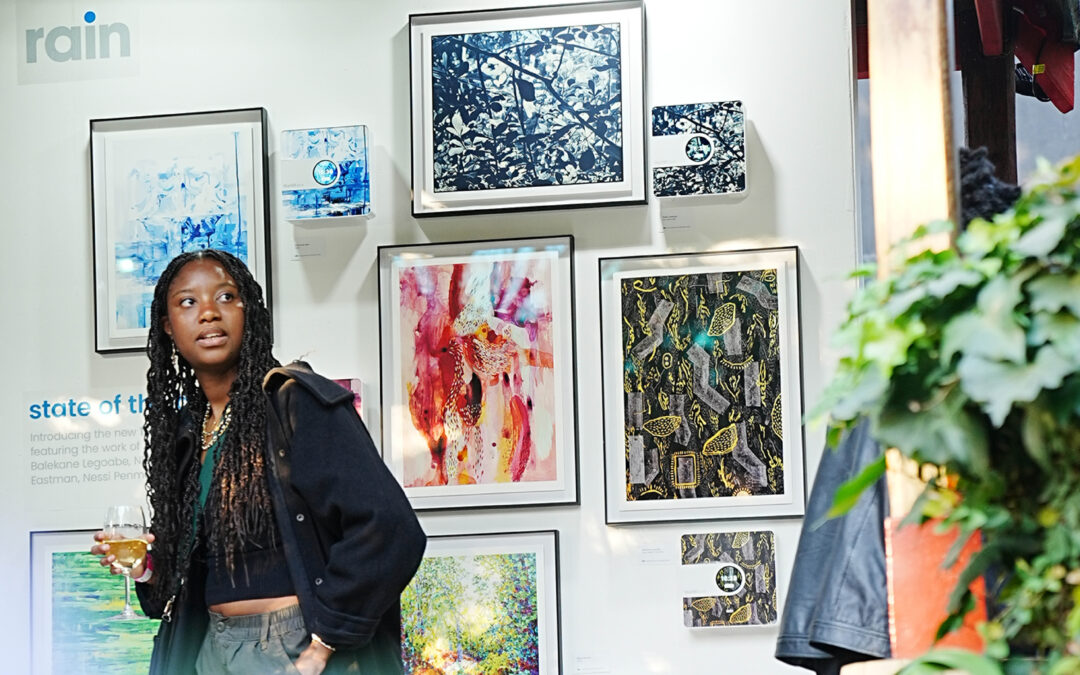As I said before, I struggle to find the words, so I think I’ll borrow some that maybe some of you can relate to. On a rewatch of The Bear, in a particularly self-pitying state of mind after what I consider to be some of my worst writing, I was greeted by one of the best representations of imposter syndrome within my reading of it. Carmen (Jeremy Allen White) has a flashback of his time at his previous job in New York getting broken down by the Head Chef. The scene shows just how toxic an industry he finds himself in, but I always found the scene to resonate with the kind of self-talk I rather worryingly engage in regularly.
HC: Why do you hire fucking idiots? Do you like working with fucking idiots?
Carmen: I’ll do better.
HC: Say, “yes, Chef.”
Carmen: Yes, Chef.
HC: Can you not handle this? Is it too much for you? Answer me.
Carmen: I can handle it.
HC: I can handle it, Chef.
Carmen: I can handle it, Chef.
HC: 12! 10! 36! Don’t fuck with my count!
Carmen: Fire 8, 13, 36!
HC: 3! 52! 14!
Carmen: Sorry, Chefs! 8, 13, 29!
HC: Why are you serving broken sauces? Why? I get it. You have a short man’s complex. You can barely reach over this fucking table, right? Is this why you have the tattoos and your cool little scars, and you go out, you take your smoke breaks? It’s fun, isn’t it? But, here’s the thing. You’re terrible at this. You’re no good at it. Go faster, motherfucker. Keep going faster. Why are you so slow? Why are you so fucking slow? Why? You think you’re so tough. Yeah. Why don’t you say this? Say, “yes, Chef, I’m so tough.”
Carmen: Yes, Chef. I’m so tough.
HC: Say, “fucking yes, Chef. I’m so tough.”
Carmen: Yes, Chef. I’m so tough.
HC: You are not tough.
You are bullshit. You are talentless. Say fucking hands.
Carmen: Hands!
HC: You should be dead.

The Bear, Licensed Image Alamy
When I say this scene cut deep, it cut deep (kitchen/chef pun most certainly not intended).
What is this phenomenon of ‘imposter syndrome’? Labelling it as a “syndrome” makes it sound like some sort of disease, but this isn’t really the case. Psychologist Pauline Rose Clance and her colleague Suzanne Imes were the first to study the topic in 1978 and focussed their study on successful women and marginalised groups. Since that first study, it has become apparent that this feeling is practically universal as “the same thing has been established across gender, race, age, and a huge range of occupations… To call it a syndrome is to downplay how universal it is. It’s not a disease or an abnormality, and it isn’t necessarily tied to depression, anxiety, or self-esteem.” I guess there is the first point of solace to be found, we are truly not alone with regard to this feeling. As such, we shouldn’t be so averse to talking about it with others because your peers, colleagues and/or loved ones may be experiencing the same thing more often than not.
After a particularly bad day, I recently opened up to my partner. I rewatched Barbie alone at 9 am and cried to Billie Eilish and Boygenius singing when the party’s over together. It was a dark day, and I needed some cathartic relief. Essentially, my very open, very honest and very vulnerable conversation with my partner boiled down to me feeling lost, out of touch with my writing, with the culture, with the audience and just generally feeling like an undeserving fraud. Fortunately, she is far more level-headed than I am and pointed out that in this case, as is the case quite often, I was being my own worst enemy. Nobody called me out, chastised me, or even mentioned that they didn’t like my work. It was all me just convincing myself that this made-up reality in my head was, in fact, the undeniable truth. My need to produce perfection had, in turn, produced a very avoidable path to a panic attack.
On the point of perfectionism, there are five subgroups which pertain to Imposter Syndrome, as coined by Dr. Valerie Young: the Perfectionist, the Superhuman, the Natural Genius, the Soloist, and the Expert. These closely follow the original six criteria expressed by Clance, but these are more digestible and convenient, Young has also provided tools to deal with each.
The Perfectionist: Imposter syndrome and perfectionism go hand in hand. It’s hard to feel satisfaction in your success when you constantly believe that you could have done it all better.
Tool: Although it may be easier said than done, we must accept that mistakes and failures are also part of the process. It’s a part of the process that allows us to learn and grow. For the perfectionist, there is often a debilitating amount of planning and overthinking involved, which in turn means we often overthink our way out of pursuing a project or taking a chance. Young suggests just forcing yourself to start something you’ve been planning for months, as realistically, there’ll never be a perfect time.
The Superhuman: Have you ever thought, ‘I just need to work harder and harder to measure up’? Well, this is a common tactic to cover up insecurities relating to our jobs. We want to be invaluable all in pursuit of validation, external validation that I’m sorry to say doesn’t pay the bills but rather just gives us an often false and skewed sense of security.
Tool: Here, Young recommends focusing your efforts on cultivating positive inner validation rather than focusing on external validation as fuel. This way, we also get to understand that constructive criticism isn’t meant to be personal but rather a set of suggestions to be looked at, reviewed and evaluated. Once we realise that the opinions of others don’t matter nearly as much as we think, we can slowly start to find balance in the workload we take on, morphing our schedules to be far more reasonable.
The Natural Genius: Young mentions here that often, we set our own internal bars so impossibly high that we are prone to failure and disappointment. We don’t measure our success or aptitude at acquiring a new skill by the effort we put in, able to see that, slowly but surely, we are improving. Unfortunately, we set the bar so high that we believe if we are some prodigy, acquiring a skill with ease at an inhuman rate that, we are inherently a failure.
Tool: We are all simply a work in progress. I have also been of the opinion that I am terrible at learning new languages, but I’ve always been quite proficient in picking up new sports or a hobby if I’m immensely interested in it. I am very slow in new language acquisition, but the polyglot I’m comparing myself to probably couldn’t hold a candle against me in many of my other hobbies. Focus on one small aspect at a time to improve this rather than trying to master something difficult all in one fell swoop.
The Soloist: This is that ‘I can do it all by myself’ trait. Young identifies this subgroup as those who believe that asking for help inadvertently exposes you as the fraud you picture yourself as, and thus, you turn away help even if it would be beneficial. (I am just saying on a side note that this screams to the plight of modern masculinity and my gender’s endless obsession with dangerous alpha male doctrines.)
Tool: Realise that there is no shame in asking for help. I, for example, am in the infancy of even learning Korean, so if I don’t know how to read something or say something, I’ll just ask my partner. However, this translates into a wider experience, so for all the macho bravado manne out there, remember real men cry to Barbie and Billie Eilish.
The Expert: Young explains that this subgroup measures their value on how much they know, constantly living in fear that they don’t know enough and will be caught out eventually.
Tool: Listen, there is always more to learn, but we simply do not have to know everything. Just imagine how overwhelming that would be. Young suggests we adopt a method called ‘just-in-time learning’; that is to say that we acquire skills when we need them.

Courtesy of DTS
So why is this a super extensive article about Imposter Syndrome? Well, it isn’t some self-soothing exercise, although the writing of this article has been far more impactful as a vehicle for cathartic relief than I ever could have imagined. Simply put, I am trying to be this comprehensive because the statistics show that 70% of us will experience imposter syndrome at some point in our careers. Now, to my fellow creatives out there, the message is even more bleak. The creative and design industry has the highest reported percentage of people with imposter syndrome, with one survey reporting figures as high as 87% of respondents. There’s this beautiful article on It’s Nice That, which I don’t want to butcher by picking bits and pieces as I think it should be read as a whole, that deals with that immense sense of imposter syndrome experienced by those in the creative field.
To some extent, we are prisoners of our situation. Our work and its value are kind of decided on by those who engage with it, and that is a fucking terrifying thought. In a modern age, we have become prisoners to trends, TikTok, algorithms and stats. How many click throughs did I get, how many eyes can I attract and keep, and how can I leverage those eyes for financial gain? This is all before we even consider the work we produce or plan to create. So how do we manage? Well, we accept the absurdity of it all. We are all just wandering around, not quite sure what we are doing or if we are doing it in the right way. Listen, if even one of the greatest minds in the history of our flawed species, Albert Einstein himself, thought he was nothing more than an “involuntary swindler”, we could all be far more kind to ourselves.
Written by: Casey Delport
For more news, visit the Connect Everything Collective homepage www.ceconline.co.za














